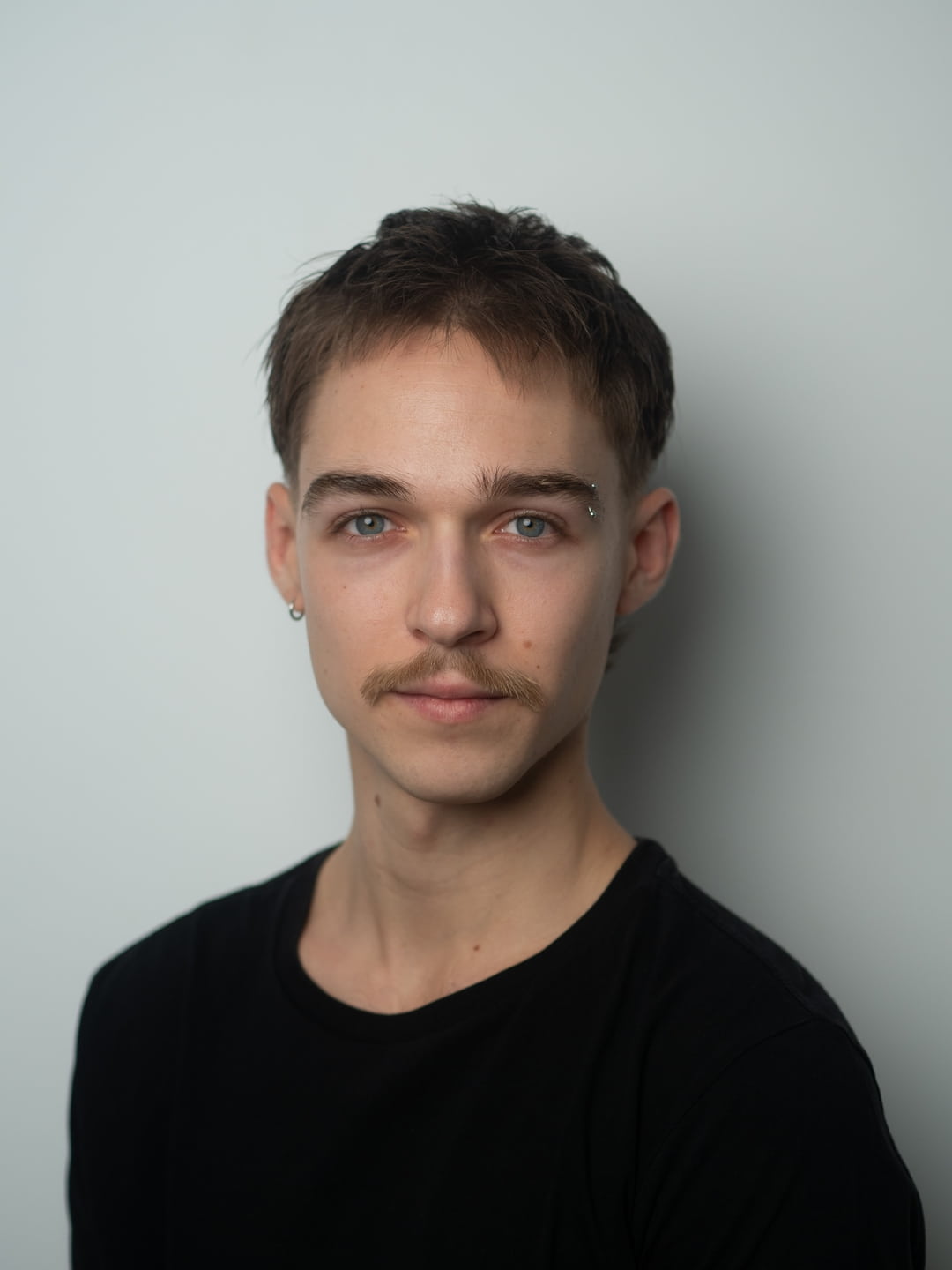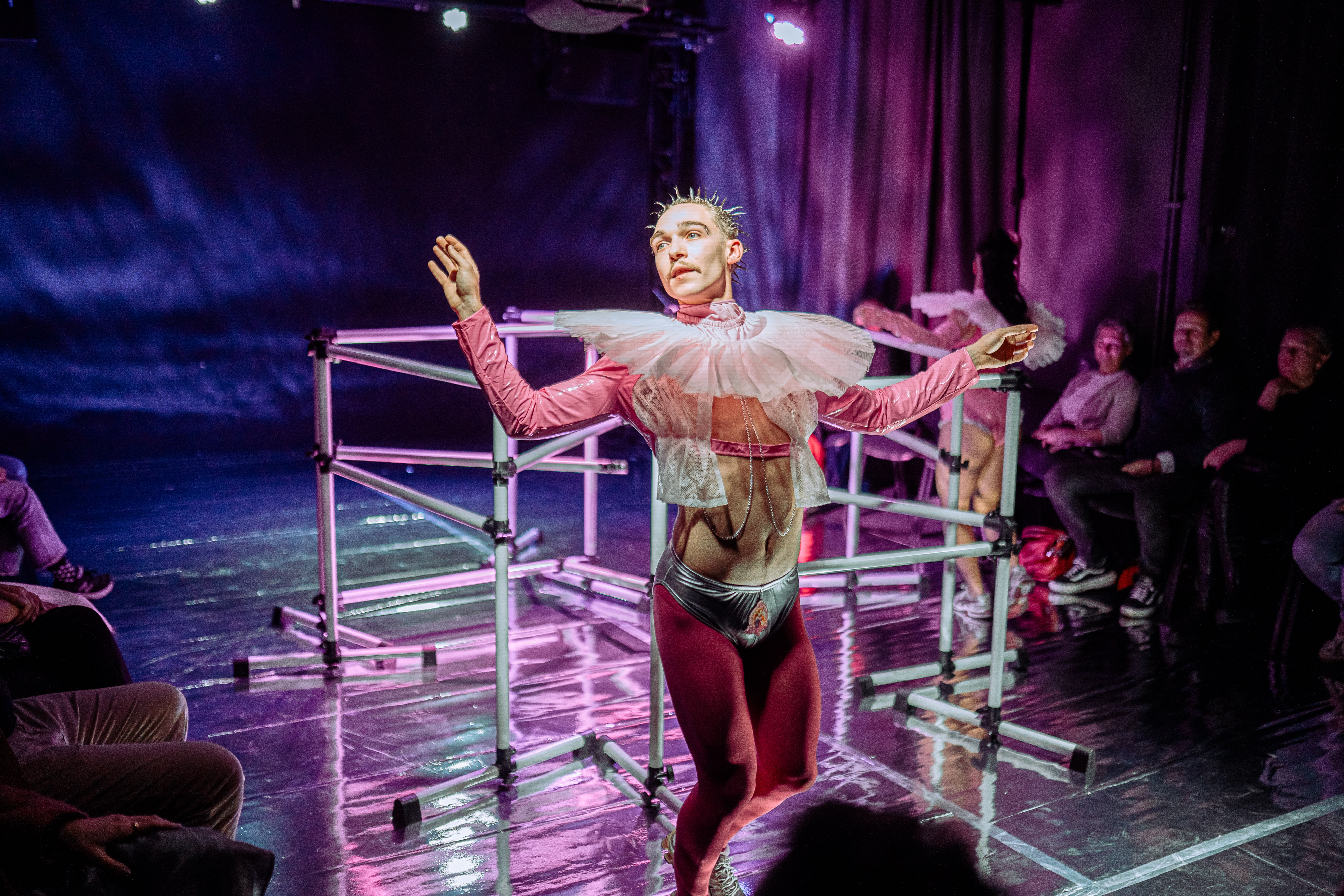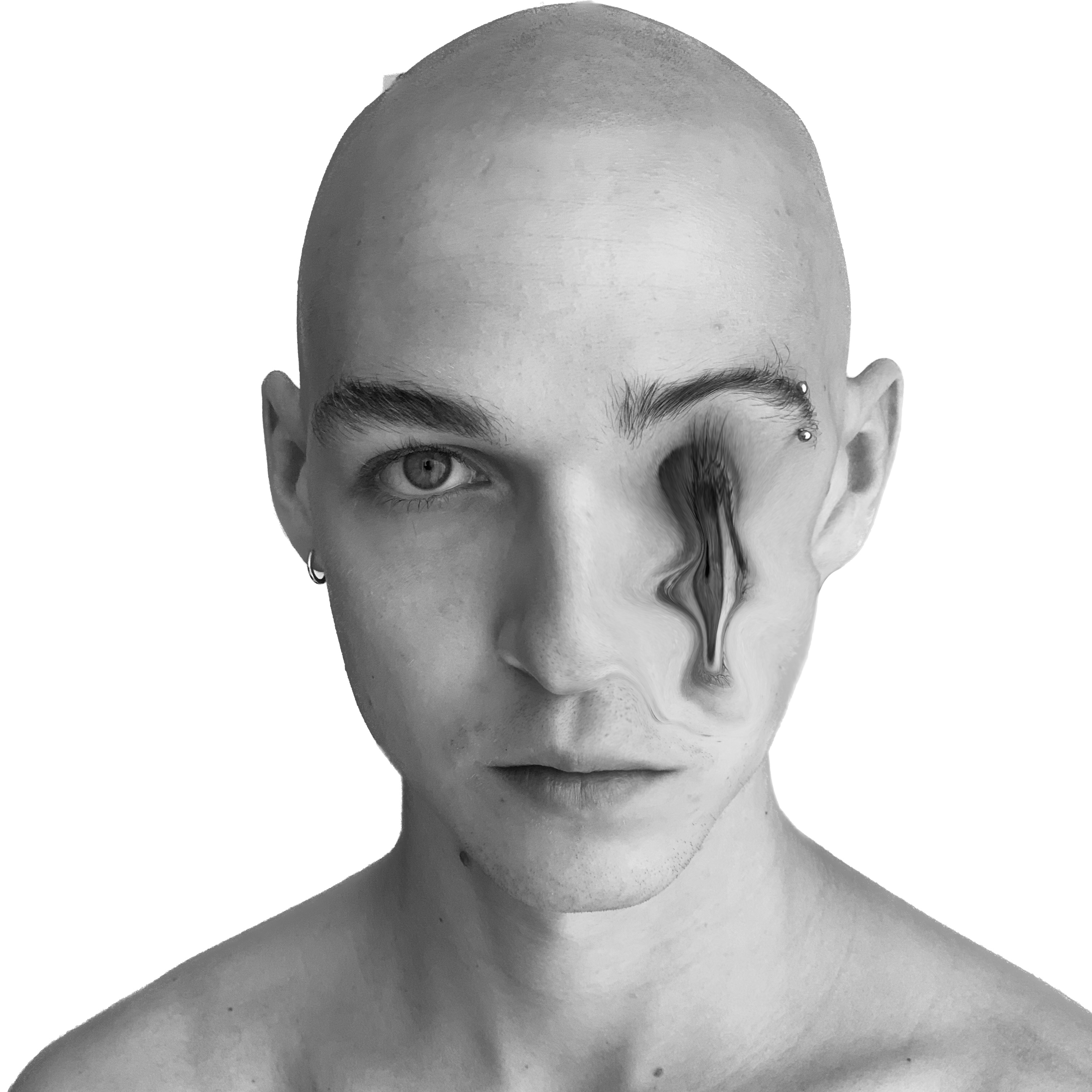
Wojciech Rybicki
Wojciech Rybicki - he/him
Queer experimental performer
Country: Poland
Discipline: Danse – Performance
Type of public space: Urban – Industrial
PLATFORM 2025 - 2028 Open call #1

Biography
I love experimental performance. I treat art as a medium for redefining memory and designing a future that's sharp in its care and open to what is different. I find myself in ballet ethnicity and its failure potentials. In my practice, I search for what is tender and choreopolitical. I move at the intersection of deviation and chimerism. These are models of pleasure, fantasy, silliness, fragmentarity, and collective imagination. I believe that choreography goes beyond working with the body - it is a radical and alternative method for rethinking the world anew. My research explores (post)communist simulations and speculative fiction. I strive for a total experience.
Born on September 22, 2001, in Bytom. A queer artist working in the fields of choreography and performance. A graduate of the PERA School of Performing Arts in Northern Cyprus. Nominated in the 10th edition of the Forecast platform for the project 'Three Sisters. Pas de mark.' Artistic resident at Scena Robocza (Poznań) with 'idontlikemetut(yo)u', Agit Lab (Águeda), Kielce Dance Theatre (Kielce), and Exis Dance Company (Athens). Co-creator of performances such as 'Swans vol.2' at the Grand Theatre Opera (Poznań) (FEDORA Audience Award), 'Practice of Seeing' at the Kazimierz Dejmek New Theatre (Łódź), and 'The Mind is a Still Smoke in an Endless Space' during the East African Nights of Tolerance (Kigali). Recipient of a 2025 cultural grant from the municipality of Bytom.
Artistic project
At some point of history, we will be forgotten. Time will pass, and people will forget us, forget our faces and voices. Everything we love and fear, our bodies and dances will disappear. So let’s disappear, but in the meantime, let’s dance with memory.
It’s a semi-documentary ballet idea that uses the potentials of marking - an dancers act of practicing given choreography in reduced or simplified form - to explore intersystemic feeling of stagnation. The libretto of this ballet is built from quotes of conversations conducted with people living in places where the future never came. It’s a catalogue of forgotten dances that took place in buildings built in the former Eastern Bloc, which have witnessed systemic transformation - the repeated worlds that offered us the same promises.
Many phenomena and people seem to have no proper breakthrough. There’s a certain sense of inherited disappointment in them. In opposition - this ballet adopts a different way of being and remembering. Instead of the desire for fulfillment and eternity, I ask you to forget me.
This performance is an archive of ignored and invisible choreographies placed in between communism and the future. These dances - dispersed in the memories of shopkeepers, teachers, administrative workers, sex workers, theatre makes - here return as a catalogue, a libretto which becomes in the same time a physical object and a choreographic score, whose post-linear logic is tender and fragmented. Each audience member reads it individually, as a single witness. It creates an intimate and unique situation, because each person experiences a different ballet. It’s a ballet of phantoms flying between our bodies and beyond time. It’s a marking practice. An incomplete presence that becomes a celebration of ephemerality and imperfection: a conscious act of accepting that what’s momentary also has value and meaning. Asking to be forgotten doesn’t mean giving up on existence; rather, it’s an attempt to reverse the narrative. It’s an affirmation of life as it is.
It’s a performative sabotage of systems done through memory. It’s a ritual dance combined with a queer takeover of bodies subordinated to the logic of unfufillment. Finally, it’s a ballet you’re going to forget.
Format : choreographic performance
Size of audience : depends on building
Specific location : communist-era housing complexes, currently still in use
Timing / duration : few hours long





